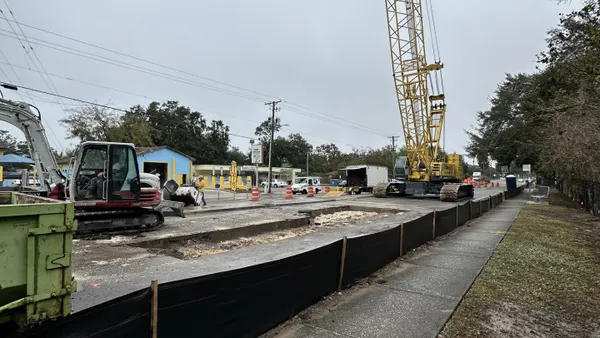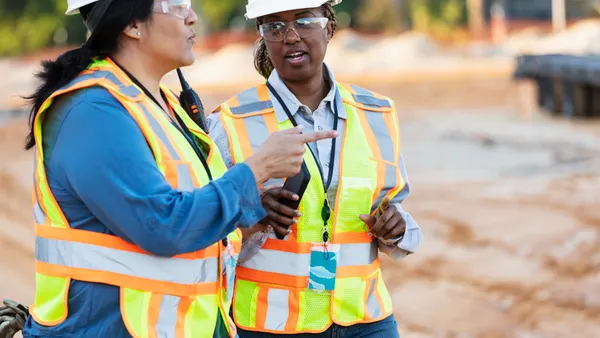Dive Brief:
-
The Virginia Department of Transportation launched a free, cloud-based platform to share roadway and other transportation data with developers of transit-related apps and products.
-
SmarterRoads.org offers individual users access to up to 22 data sets, with initial options including traffic volume, lane closures, speed limits, paving schedules and short- and long-term weather events.
-
The move aims to hasten the development of connected and automated vehicle (CAV) technology in the state.
Dive Insight:
Interest in CAV technology is growing among U.S. states, as evidenced by VDOT’s latest move and similar efforts by other states to fund or otherwise inform more research in the category.
Earlier this month, the Iowa Department of Transportation released a study that predicted up to 85% of traffic on its Interstate 80 to be highly or fully automated by 2040. The Florida Turnpike is building a test track to explore high-speed tolling and vehicle-to-infrastructure and vehicle-to-vehicle communications. And Rhode Island in June issued a request for information to the private sector to explore CAV on state projects. Ohio and Georgia are also testing such technology along stretches of their state highways.
In April, the National League of Cities issued a guide recommending that municipalities begin preparations for CAV technology. That includes monitoring ongoing policy changes and building data tracking and management systems that could support the transit technology infrastructure needed to have such vehicles on the roads.
New federal legislation under review would see the development of formal rules and regulations for CAV, adding fuel to states’ fire. If the law were to pass, it would exempt self-driving car manufacturers from current legislation that prohibits such technology to operate without driver controls — that is, a human override. The move could see as many as 100,000 self-driving cars hit the road as a way to help private companies further develop their technology.
Test tracks across the country are also expected to be a proving ground for CAV, in addition to stretches of highway fitted with the requisite tech. Florida is one state hoping to distinguish itself for just that, with its efforts including the construction of a 400-acre, eight-lane track and a partnership between Florida Polytechnic University and the Massachusetts Institute of Technology to offer curriculum on the topic.












